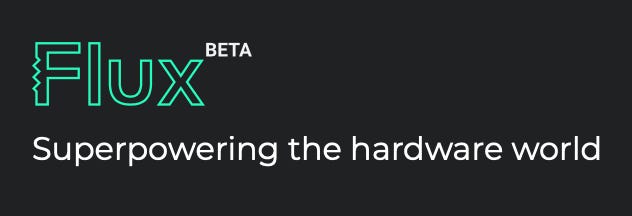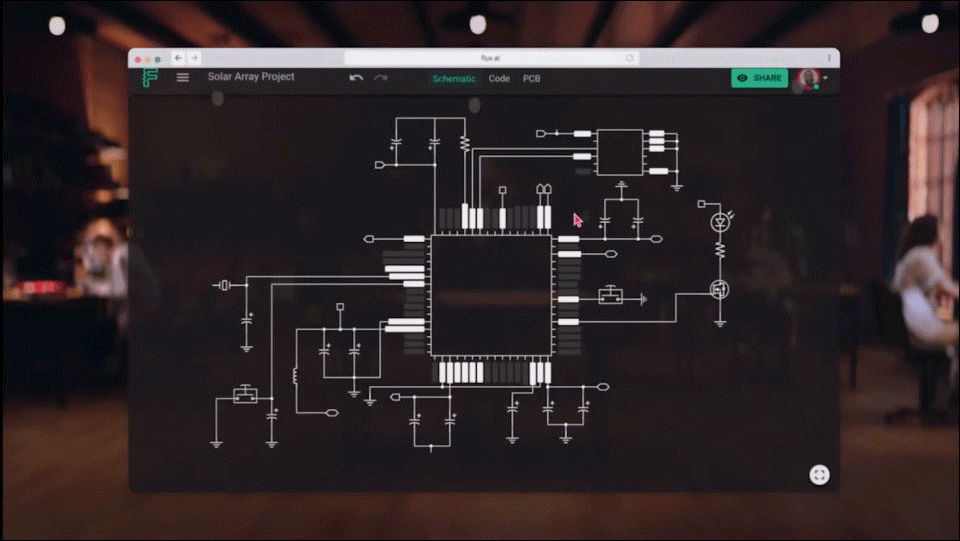Flux - The Figma and Google Sheets for Building Hardware
Notable Rounds: Fieldguide, OpenSpace, FreeWill, Fanatics - Netflix signals further push into gaming - Carlota Perez Recommendations
Notable Funding Rounds:
Fieldguide (San Francisco) - Series A - $17,000,000 - 8VC (lead investors)
Fieldguide is an automation and collaboration platform for modern assurance and advisory firms that digitizes the end-to-end engagement workflow on a single platform. Fieldguide is trusted by top CPA firms such as CLA, Withum, and Warren Averett to improve margins, win new business, and build stronger client relationships. Investors include 8VC, Floodgate, Point72 Ventures, DNX Ventures, Global Founders Capital, and AICPA/CPA.com. They’re also an alum of Y Combinator.
OpenSpace (San Francisco) - Series D - $102,000,000 - PSP Growth (lead investor)
OpenSpace offers photo documentation that is automatically pinned to plan location with A.I. They specialize in computer vision and construction. Their investors include PSP Growth, Lux Capital, Navitas Capital, JLL Spark, Nine Four Ventures, Zigg Capital, Menlo Ventures, Alkeon Capital, GreenPoint Partners, Taronga Group, Jones Lang LaSalle, Tishman Speyer, AngelList, Fischer homes, and Foundation Capital.
FreeWill (Palo Alto) - Series B - $30,000,000 - Bain Capital Double Impact Fund (lead investor)
FreeWill is a social-good enterprise offering online tools that empower Americans to address commonly faced estate planning needs and make charitable donations in tax-advantaged ways, all for free. FreeWill also features a charitable giving platform that makes it easier for nonprofit fundraising teams to unlock transformational non-cash gifts. Through its partnerships with 1,000+ nonprofits who understand that major gifts often are part of estate plans, the company is also able to provide a comprehensive suite of estate planning and related tools to consumers free of cost. To date, FreeWill has generated nearly $5 billion in planned and real-time gifts for more than 10,000 nonprofits while helping more than 460,000 consumers create wills and plan their estates.
Fanatics (Jacksonville) - Private Equity Round - 2,600,000,000 - Fidelity Management and Research Company, BlackRock, MSD Capital (Michael Dell’s family office)
Fanatics designs, manufactures, and distributes high-quality fan gear and jerseys across retail channels, better serving the real-time expectations of leagues, teams, fans, and retailers in today’s mobile-first, on-demand culture.
Scouted:
Latest Funding: Seed - $12,000,000
Total Funding Amount: (see above)
Industry: Electronic design software - Future of Work - Artificial Intelligence
Founders:
Christian Blank (CTO, Apple Alum)
Lance Cassidy (Chief Expierence Officer, NASA Alum)
Matthias Wagner (CEO, Facebook alum)
Key Investors:
Outsiders Fund (led Seed Round)
Snapshot:
Flux is an electronics design software platform that enables engineers to build hardware more efficiently with real-time collaboration, an easy-to-use simulator, and forkable community content. Think Figma for circuit design.
The Problem:
When building hardware, every step of the process includes friction. Planning, researching, prototyping, and testing are slow and expensive. It’s also too easy to make errors, and every error costs lots of time and money. In addition, the process can make it challenging to collaborate with other engineers because of the physical nature of building hardware, forcing it to become an independent process. Flux believes building hardware should not be something you do alone in a silo, it should be collaborative.
The Solution:
Flux features a programmable simulator that allows engineers to quickly build interactive mockups of real-world parts and scenarios. The platform also provides engineering teams a shared space to work together, and it can run on any modern web browser. Engineers can also invite other engineers to collaborate in real-time. The engineers can add to the conversation by leaving comments, questions, and tasks for other team members. Think Google Docs for building hardware. Tasks such as wiring components together are also automated, and the simulator lets engineers test their circuits before prototyping.
The Business + Why I Like Flux:
As you can tell from the logo, Flux is still currently in its beta phase. There is an option for engineers to sign up for the beta, and per their website, they’ve had 5,400+ engineers sign up to use Flux. At this stage in their company life cycle, the focus should obviously be on the product. If the product is as good as it looks, monetization should be the fun part with the number of engineers and growing chip demand. Nonetheless, Flux currently does have four different monetization plans for its product.
Free - The basics for individuals and organizations. Includes:
Programmable simulator
Unlimited public projects
Community support
Unlimited viewers
Unlimited collaborators
Real-time part pricing & availability
Shareable links
Link access controls
On-canvas commenting
Version control
KiCad import & export
Professional (coming soon) - $7 per user/month - Advanced collaboration for individuals. Includes everything from free and:
Unlimited private projects
Access to pro support
Team - Contact for price - Advanced collaboration for individuals and organizations. Includes all features from Pro and:
Shared team space
Individual permissions
Enterprise - contact for price - Security, compliance, and flexible deployment. Includes everything from Team and:
Enterprise IP/data management
Admin insights dashboard
Centralized admin and billing
SSO + advanced security
Auto-provisioning via SCIM
I have to believe the majority of revenue will come from the B2B side of their business with the Professional and Team plans. I think Flux understands they can create a lot of sticking power with engineers through their Free and Professional plans that will eventually transition into demand for Flux from the engineers towards their employers. They’ve even started building a community for “hardware people” called Friends of Flux Community. The one thing I’ve always admired about engineers is their culture to always be building something, and if you have that much passion to constantly build, you’re going to invest in a product that improves your process. If that’s the case, every engineer that uses flux will operate as a lead generator to get the product at their company or incorporated into their team project.
Either way, I look forward to tracking their progress with the product and the adoption.

News:
Mega-funds continued to dominate the private funding space for PE firms in 2021, and all signs are pointing toward the trend progressing this year. Funds with $5B+ made up 44% of fundraising totals among PE firms and accounted for $143.4 billion last year. However, the gap between mega-funds and sub $1B funds performance has shown to get more narrow over time in terms of IRR.
Netflix buys Finnish cloud gaming developer signaling their further push into gaming. Netflix agreed to acquire Helinski-listed game developer Next Games for ~$72M. The deal is still awaiting shareholder approval.
Fanatics Raises $1.5B at a $27B Valuation. Investors in the round include BlackRock, Fidelity Management & Research, and Michael Dell’s family office. The speculation for an initial public offering is sure to start ramping up.
Recommendations:
Everything Carlota Perez today. She is hands down my favorite researcher and teacher when it comes to understanding the economic impact of technological change.
Watch:
Paradigm Shifts with Professor Carlota Perez
Listen:
Carlota Perez on Surviving the Latest Technological Revolution
Read:
Technological Revolutions and Financial Capital: The Dynamics of Bubbles and Golden Ages. (easily one of my favorite books of all time)



